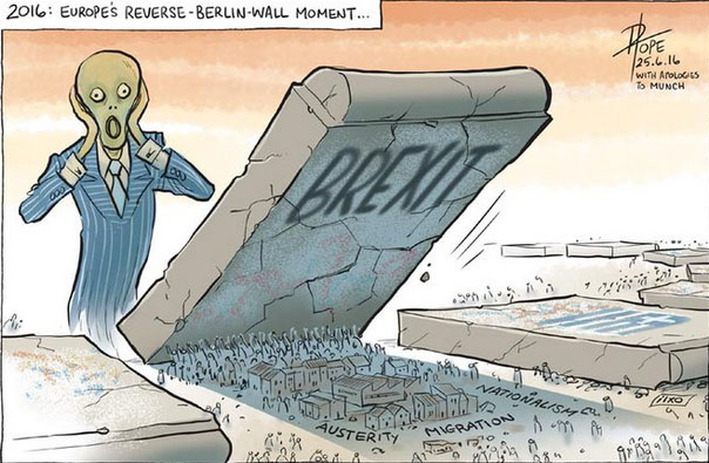 The most drastic separation of nations since the fall of the Berlin Wall occurred this summer. For millennials, Brexit—or the United Kingdom’s decision to exit the European Union—takes the cake for biggest upheaval in global governance in our lifetime. How will this affect the upcoming COP22 meeting in Morocco? A look back on Brexit… The vote for Britain’s exit from the European Union stemmed from, among other things, a rejection of centralized decision making. The UK Independence Party (UKIP) championed a call for Britain’s reclamation of rule. They want an autonomous ability to regulate their economy, job market, and borders. The referendum had a bit over 70% voter turnout. The majority vote for ‘Leave’ won with 55% of votes. Scotland, North Ireland and London voted to ‘Remain’, but were outvoted overall. The UK is out. Why should I care? The Brexit vote validates the wave of nationalistic sentiment that is creeping into major political scenes; Le Pen of France, Farage of Britain, Wilders of the Netherlands and Trump here at home are all heads of the same nationalistic beast. Brexit stands as evidence that voters are attracted to the idea of ‘independence’, embodied in closing borders and avoiding extensive negotiations with other nations. Many feel it is time to take care of those at home than those in need elsewhere. I’m sure that many Americans, myself included, are now concerned that Trump has stronger grounds to stand on post-Brexit. It makes me afraid that the wall he so often speaks of might become a reality: if not physically, bureaucratically. And with the rising need for international cooperation to combat climate change, we need more weak ties between nations and less fear of nationalistic, isolationists ruling parties. How does this effect global climate negotiations? The rise of nationalism and tightening borders will make it far more difficult to have a meaningful and effective discussion about how to tackle climate change. Mitigation and adaptation cannot be achieved unless they are approached in a global, cooperative manner. We need multilateral action for change: that will be very difficult if international relations become inwardly focused. Countries such as the U.S. and Britain will not be the first to be impacted by climate change--will they thus focus solely on their home soil, and choose to implement climate change adaptation merely when it is convenient for them? The Intergovernmental Panel on Climate Change (IPCC) recently released their Fifth Assessment Report, which states that global mean sea level rise is “very likely” to continue at a faster rate than the previous few decades. According to the IPCC report, small island settlements, infrastructure, economic services and economic stability are at “medium risk” in the near-term future (2030-2040). Risks at low-lying coastal areas are even higher, threatening coastal erosion and livelihoods. With global leaders looking inward, instead of at the larger picture, who will step up to work with these threatened nations to adopt mitigation policies or create adaptation plans? And should the worst occur, who will help those affected find safe and welcoming new homes? What should we look out for at COP 22? Aside from Brexit’s implications for increased nationalism and isolationist tendencies, there next comes the question of representation. In international treaties and trade negotiations, the EU sent one body of representatives to speak for the entire union. There was not a German delegate, a French delegate, a Scottish delegate, and so on. It was one entity spoken for by a shared representative. It will take a while for the UK to adapt to its new role in European and international relations. Meanwhile, we must watch as the budget changes in the near future. Hopefully no money is re-allocated away from renewable energy programs and regulations aimed at meeting the goals of the Paris Agreement.
0 Comments
Leave a Reply. |
Categories
All
Archives
March 2024
|
 RSS Feed
RSS Feed
